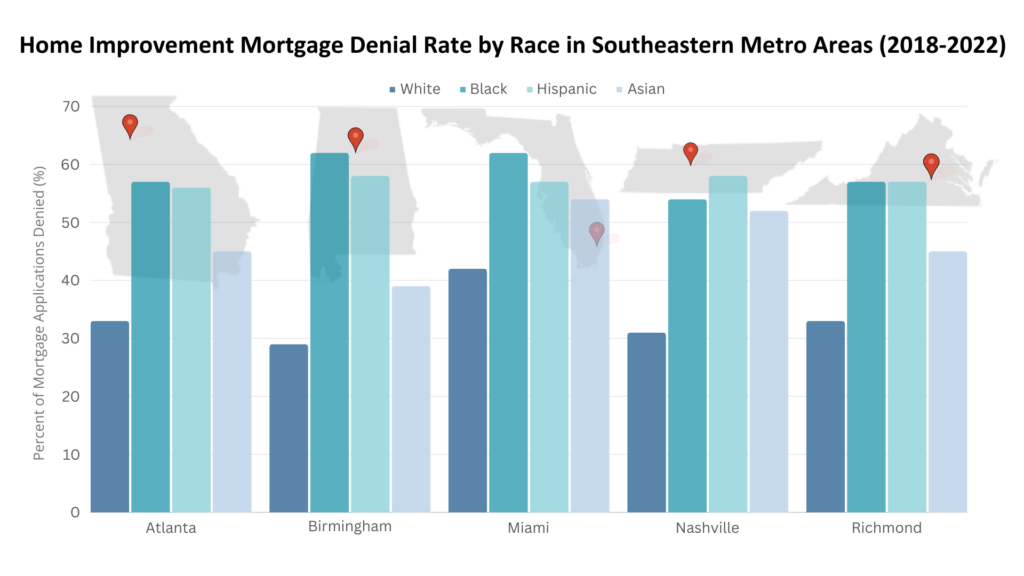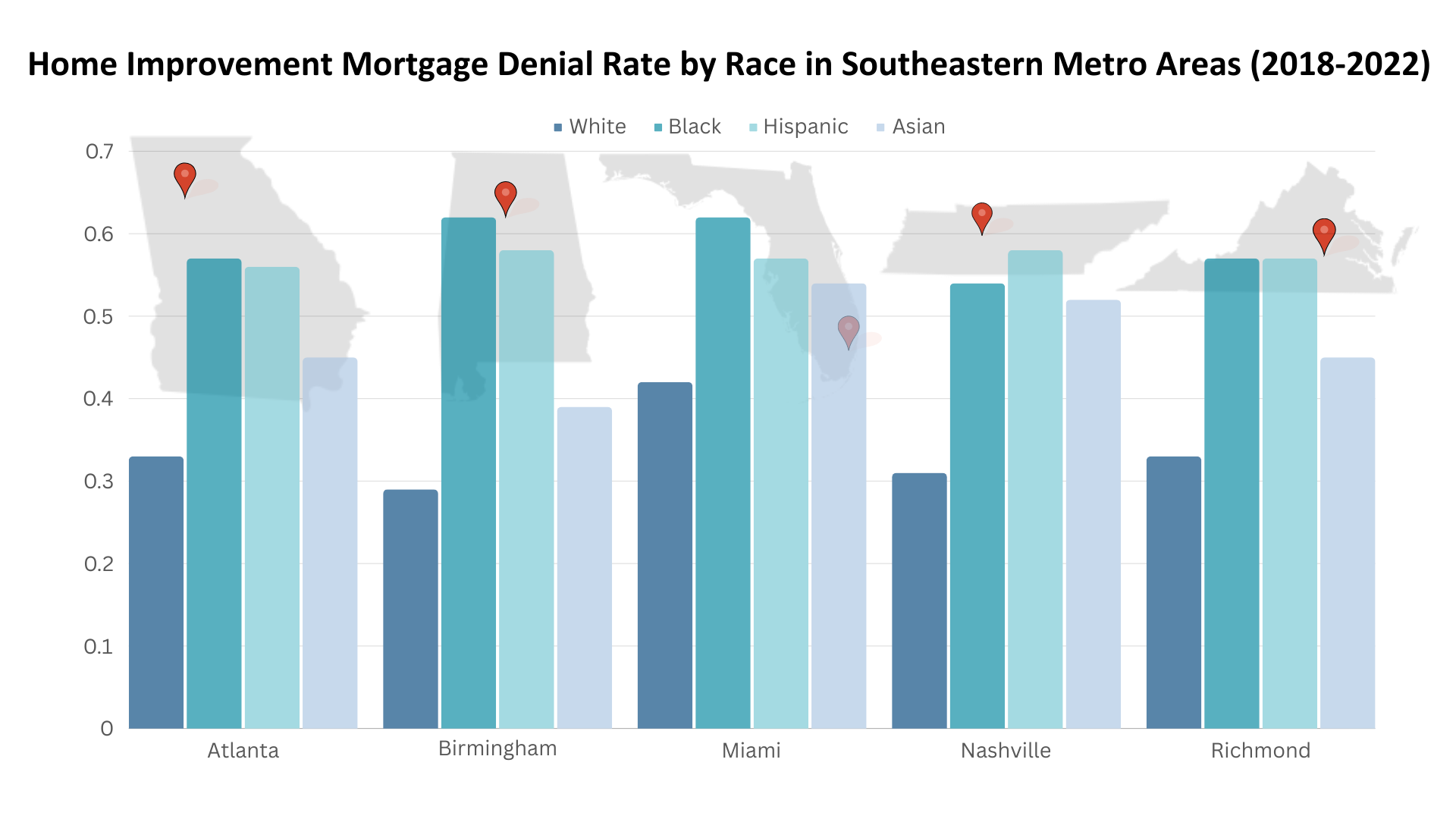Month: December 2023
2023 Election Highlights
Lily Smith

With a national election occurring next year, there is increased media attention on local candidates’ economic, social and foreign policy platforms. This fall, the Southeast held four key elections in Kentucky, Louisiana, Mississippi and Virginia, which highlighted the tension between federally funded clean energy initiatives and traditional gas, oil and coal industries. A recurrent theme throughout the 2023 gubernatorial and public service commission campaigns was emphasis on an “all-of-the-above” energy generation and supply strategy. The stance was supported by the winning gubernatorial candidates from Southeast states with large coal, oil and natural gas industries.
Kentucky
Incumbent Democratic Governor Andy Beshear sought and won reelection against opponent Republican Attorney General Daniel Cameron on November 7. Lieutenant Governor Jacqueline Coleman was also reelected. One of the most popular governors in the United States, Beshear favors an “all-of-the-above” strategy for generating and supplying energy to Kentucky residents. In a state with a historically prominent coal industry, Governor Beshear’s policy supports integrating a range of renewables and more reliance on natural gas while slowing down the transition from coal. The hesitancy to move away from coal was apparent in a bill passed in the state Senate and House in March 2023, which requires utilities to prove to the Kentucky Public Service Commission that the retirement of a coal plant would not negatively impact customer rates or the grid’s reliability. Despite public comments opposing the bill from Kentucky Utilities, Louisville Gas and Electric, and Duke Energy Kentucky, the bill became law without a signature or veto from the governor.
Energy and climate highlights of Beshear’s career include KYE3: Designs for a Resilient Economy, published in 2021, which ties together the economy, energy and the environment as priorities in ensuring a resilient economy for the state. Additionally, under Beshear’s leadership, the state has seen significant clean manufacturing investments, including a $5.8 billion deal in 2021 with Ford Motor Co. and SK Innovation to create 5,000 jobs at two new electric battery plants, a $2 billion deal in 2022 with Envision AESC to create 2,000 jobs at a battery plant, and further announcements from Rivian and Hitachi.
In 2023, Governor Beshear was one of four governors who chose not to accept funding from the EPA-administered and IRA-funded Climate Pollution Reduction Grants, which gives money to the states to develop plans to reduce greenhouse gas emissions. Beshear’s perspective is that major cities, which are also eligible, are better equipped to apply directly for these funds.
Louisiana
With Democratic Governor John Bel Edwards’ term set to expire in 2024, current Republican Attorney General Jeff Landry faced former Secretary of the Louisiana Department of Transportation and Development, Democrat Shawn Wilson. On October 14, Louisiana voters chose Jeff Landry to be the next governor of Louisiana.
Landry has described climate change as a hoax and is a strong supporter of the oil and gas industry. As attorney general, Landry sued FEMA over increased flood insurance rates in Louisiana and sued the Biden administration over a moratorium to halt the sale of oil and gas leases.
The governor will continue to be supported by Republican Lieutenant Governor Billy Nungesser, who was elected to serve a third term. Nungesser has focused his efforts in office on bringing tourism back to Louisiana coastal communities following the Deepwater Horizon oil spill in 2010.
Mississippi
Mississippi voters reelected Republican incumbent Governor Tate Reeves over Democratic candidate and former public service commissioner Brandon Presley. As a commissioner, Presley supported rebates for solar panels, which would expand net metering for low-income customers. Reeves opposed the proposal, calling it a “bad deal.”
In March 2021, Governor Reeves signed the All Fuels Act of 2021, a preemption bill that promotes an “all of the above” strategy to supply the state’s energy. The act prevents any political subdivision from prohibiting a type or energy source from being provided to a customer. The All Fuels Act of 2021 supports the state’s oil and gas industries and is speculated to prevent cities’ transitions to lower carbon energy sources. In March 2023, Governor Reeves signed HB 401, which amends provisions to the Mississippi Motor Vehicle Commission Law. The amendments require that all electric vehicle manufacturers in the state sell their vehicles through dealerships rather than directly to customers. HB 401 received a significant number of comments from electric vehicle manufacturers and advocates, including concerns of free market infringement, increased costs, loss of additional electric manufacturing investments in the state, and how to ensure quality of service and maintenance of electric vehicles.
Governor Reeves will continue to be supported by incumbent Republican Lieutenant Governor Delbert Hosemann, who was reelected this fall over Republican State Senator Chris McDaniel.
In addition to the governor and lieutenant governor races, all three Mississippi Public Service Commission seats were up for election. Republican State Representative Chris Brown ran unopposed for the Northern District Seat currently held by former governor hopeful Brandon Presley. Elected on November 7, Brown has adopted an “all of the above” approach to energy, wants to ensure low utility rates, and advocates for consumer choice. Republican Nelson Carr won the election against incumbent commissioner Dane Maxwell in the Southern District. Carr brings electrical and contracting expertise to the commission. Lastly, incumbent Republican Commissioner Brent Bailey, who supported net metering, energy efficiency, renewable energy, and integrated resource planning, faced Democrat State Representative De’Keither Stamps for the Central District Seat. In 2019, the same candidates shared the ballot, with Bailey winning by a slim majority. This year, the slight majority shifted in Stamps’ favor, who will serve as the Central District’s next public service commissioner. Stamps’ platform includes affordable energy, grid modernization, and increasing access to high-speed internet.
Virginia
In 2020, Virginians voted to establish the Virginia Redistricting Commission to redraw legislative boundaries. Between the commission’s establishment and this year’s election cycle, the General Assembly approved new maps, leading to position turnovers, early retirements, and no incumbents to reelect in the newly created districts.
Previously held by state Republicans, on November 7, the Virginia House of Delegates was flipped by state Democrats with a 51-48 majority. Additionally, Democrats retained control of the State Senate with a 21-19 majority. Republican Governor Glenn Youngkin was elected in 2021 with a commitment to withdraw the state from the Regional Greenhouse Gas Initiative. Senate Democrats used their majority to oppose and stall any legislative moves contrary to previously passed climate policies, including stopping proposals to amend the Virginia Clean Economy Act and attempting to roll back a mandate prohibiting the sale of gas-powered vehicles after 2035.
| State | Legislative Sessions Convene | Legislative Session Adjourns (all dates are estimates) |
| AL | February 6 | May 20 |
| AR | April 10 | May 9 |
| FL | January 9 | March 8 |
| GA | January 8 | March 27 |
| KY | January 2 | April 15 |
| LA | March 11 | June 3 |
| MS | January 2 | May 5 |
| NC | April 24 | July 31 |
| SC | January 9 | May 9 |
| TN | January 9 | April 25 |
| VA | January 10 | March 9 |
Map of the Month – December
Grace Parker

Source: Federal Financial Institutions Examination Council, Home Mortgage Disclosure Act Dataset; Graph: SEEA
Following last month’s map that explored home purchase mortgage denial rates by race, this month’s map shows home improvement mortgage denial rates by race in five Southeast cities: Atlanta, Birmingham, Miami, Nashville, and Richmond. Like mortgage loans for home purchases, we found wide disparities between racial groups in their ability to access lending for home improvements. Using data collected by the U.S. Consumer Financial Protection Bureau to ensure compliance with the Home Mortgage Disclosure Act, we discovered that the denial rate for home improvement loans in each city is highest for Black and Hispanic applicants, followed by Asian applicants, with white applicants experiencing the lowest rates. In Birmingham, the denial rate for Black applicants is twice that of white applicants.
In each of these cities, denial rates for home improvement mortgages are generally higher than those for home purchase mortgages. Home Mortgage Disclosure Act regulations consider home improvement loans as those that are “for the purpose, in whole or in part, of repairing, rehabilitating, remodeling, or improving a dwelling or the real property on which the dwelling is located.” This includes home improvement spending built into mortgages for home purchases or lines of credit opened for home improvement if the home itself is used as collateral on the loan.
According to the U.S. Census Bureau’s American Housing Survey, about a third of home improvements in the Southeast are for energy efficiency measures. Limited access to capital for home improvement hinders the ability of homeowners, particularly Black, Hispanic, and Asian homeowners, to make energy efficiency upgrades. This further contributes to racial disparities in energy costs and burdens and makes it more difficult for people of color to access healthy, efficient and affordable housing.
Southeast Energy Efficiency Alliance Announces New Board of Directors and Advisory Committee Members
ATLANTA, GA – The Southeast Energy Efficiency Alliance (SEEA) today announced new members of the Board of Directors and its Advisory Committee.
“We are honored and excited to welcome this new slate of 2024 Board of Directors and Advisory Committee members,” said Joe Gehrdes, Chair, SEEA Board of Directors. “They represent the leading voices in energy efficiency in the Southeast and we look forward to working together to improve the quality of life across the region.”
New Board of Directors members begin their three-year terms on January 1, 2024. The new board members are:
- Monika Beckner, Vice President, Energy Services & Programs, Tennessee Valley Authority
- Mandy Faulk, Director, CLEAResult
- Tim Jarrell, Vice President, Power Supply Rates and DER Strategy, Cobb Electric Membership Corporation
- Ian McLaughlin, Principal – Sustainability, Carbon Program Lead, Chick-fil-A
- Jason Pope, Director, Energy & Natural Resources Division, Mississippi Development Authority
- Carlos Tejera-Fernandez, Program Director, Energy Policy Program, Department of Economic Development and Commerce of Puerto Rico
New Advisory Committee members begin their 1-year terms on January 1, 2024. The 2024 committee members are:
- Tom Ashley, Vice President, Government & Utility Relations, Voltera
- Anne Dougherty, Founder & Co-owner, ILLUME Advising
- Tony Morgan, Deputy Director, Office of Energy, Florida Department of Agriculture and Consumer Services
- Stephen O’Day, Partner, Smith, Gambrell and Russell LLP
- Mitchell Simpson, Associate Director, Arkansas Energy Office
- W. George Taylor, Business Development Director, Walker-Miller Energy Services
- Jay Wrobel, Senior Advisor, Residential and Utility Strategy, Building Technologies Office, U.S. Department of Energy
Questions? Contact Sarah Burgher, senior marketing and communications manager.


